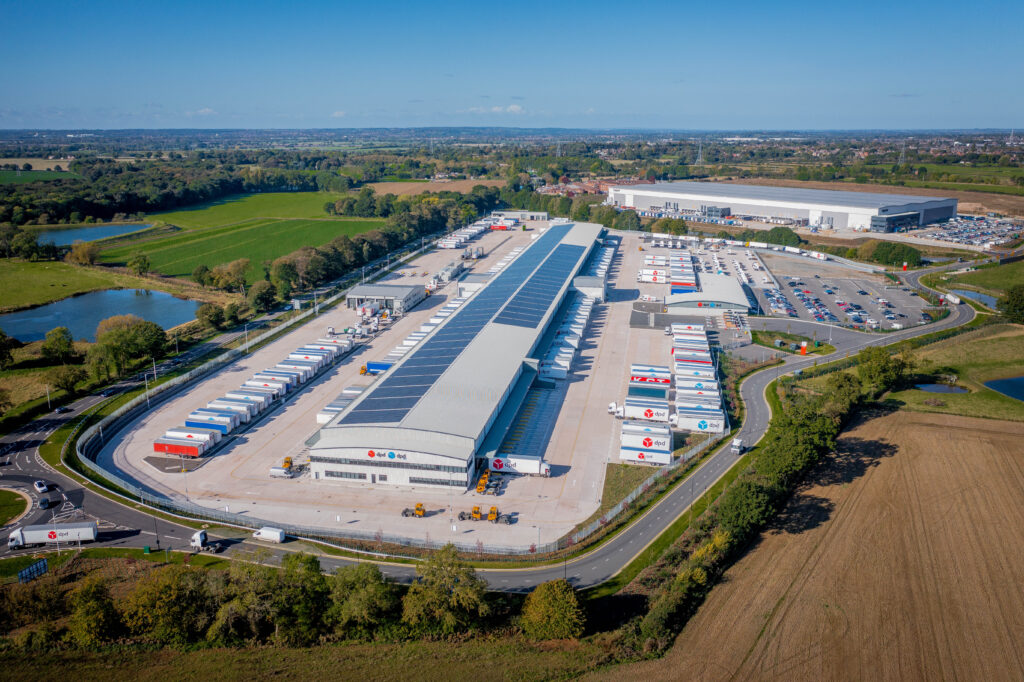Введение в устойчивую логистику
Решение практических и юридических задач в логистической отрасли имеет важное значение для развития устойчивости. Инновации в инфраструктуре зарядки электромобилей и обновления законов о дорогах предоставляют логистическим компаниям возможности для повышения эффективности и сокращения воздействия на окружающую среду.
Роль логистики в достижении нулевого уровня выбросов
Логистическая отрасль является краеугольным камнем в перемещении товаров по сложным цепочкам поставок, внося значительный вклад в национальную и глобальную экономическую стабильность. Поскольку правительства ставят амбициозные цели по достижению net zero чтобы сократить выбросы к 2050 году, сектор логистики находится на поворотном этапе, где адаптация и инновации являются первостепенными задачами.
Однако, существуют существенные риски, если достижения в области устойчивого производства будут нивелированы высокими выбросами углерода при доставке, известными как Scope 3 emissions. Эти выбросы часто составляют значительную часть общего углеродного следа компании, подчеркивая роль логистического сектора не просто как участника, но и как фактора, способствующего более широким усилиям по декарбонизации в различных отраслях.
Экологическое воздействие логистики
По данным аналитики консалтинговых фирм, мировой сектор логистики отвечает примерно за… 7% мировых выбросов парниковых газов, с транспортом, который составляет около 80% этих выбросов. Хотя отрасль добилась определенных успехов в сторону более экологичных операций, остаются проблемы, которые носят как практический, так и нормативный характер.
Инновации как катализатор перемен
Переход к устойчивой логистике не может быть достигнут только путем замены традиционных дизельных транспортных средств на электрические. Этот переход требует инновационных стратегий для решения нескольких ключевых проблем:
- Соображения по поводу полезной нагрузки для максимальной эффективности
- Оптимизация маршрутов водителей для сокращения расстояний поездок
- Ограничения дальности хода транспортных средств, которые препятствуют операционной эффективности.
- Создание как локальной, так и общедоступной зарядной инфраструктуры
Например, компании, стремящиеся к достижению net zero targets, such as DPD, have begun implementing smart charging systems that allow drivers to book charging slots in advance, alleviating worries related to charging availability. Additionally, trials for autonomous deliveries demonstrate how innovation can help navigate logistical challenges in urban environments.
Challenges Stalling Progress
Несмотря на быстрые достижения, логистическая отрасль сталкивается со значительными препятствиями, которые требуют решения. Эффективная государственная поддержка имеет решающее значение для того, чтобы переход к "зеленой" экономике стал реальностью. Например, в Великобритании насчитывается около 80 000 зарядных точек доступен сейчас, он стремится к большему, чем 300 000 к 2030 году. Отчёты показывают, что предстоит ещё многое сделать для обеспечения справедливого доступа к этим зарядным точкам в разных регионах, что указывает на отсутствие скоординированных действий в области политики.
Развивающаяся правовая база, регулирующая новые логистические технологии, является еще одной областью обеспокоенности. Внедрение роботов-доставщиков и дронов поднимает сложные вопросы, касающиеся ответственности и правил безопасности. Принимая во внимание, что действующее законодательство в основном разработано для традиционных методов доставки, логистическим компаниям приходится ориентироваться в запутанной правовой среде для безопасных инноваций.
Адаптация правовых рамок
Введение автономных решений для доставки, например, представляет собой уникальные задачи. Необходимы новые правила, чтобы эффективно учитывать эти технологии в общих общественных пространствах. Это требует сотрудничества между заинтересованными сторонами, включая поставщиков логистических услуг, юристов и представителей правительства, для создания структуры, которая будет одновременно юридически обоснованной и инновационной.
Балансирование между обеспечением безопасности и стимулированием инноваций будет иметь первостепенное значение при создании пространств, в которых автономные системы могут функционировать, не ставя под угрозу общественную безопасность. Регуляторные «песочницы» могут предложить безопасную среду для тестирования этих новых технологий, позволяя логистическим компаниям внедрять инновации без опасения немедленных юридических последствий.
Взгляд в будущее: сотрудничество для устойчивых решений
По прогнозам McKinsey & Company, спрос на экологичную логистику со стороны 2030 ожидается, что достигнет примерно £350 миллиардов, constituting 15% составляет общие мировые расходы на логистику. Это представляет собой значительную возможность для логистической отрасли не только сократить собственное воздействие на окружающую среду, но и способствовать экономическому декарбонизации в большем масштабе.
Осознание этой возможности потребует скоординированных усилий и сотрудничества между логистическим сектором, правительственными органами и различными заинтересованными сторонами. Сотрудничество может помочь найти решения для преодоления практических и юридических барьеров, препятствующих прогрессу в направлении более экологичной логистики.
Заключение: Путь к устойчивой логистике
По мере того как логистическая отрасль обдумывает свою роль в устойчивом будущем, становится ясно, что для достижения этих целей требуются как практические инновации, так и регуляторные адаптации. Путь может быть полон проблем, но, учитывая потенциальные вознаграждения на горизонте, имеет смысл решать эти препятствия с решимостью и гибкостью.
В постоянно развивающемся ландшафте логистики, GetTransport.com stands ready to meet customers’ diverse transportation needs by providing affordable, global cargo solutions tailored to both home and office moves. Through its transparent and variable service offerings, GetTransport.com simplifies the complexities of logistics, allowing users to enjoy stress-free and effective delivery options.
Ключевые выводы здесь весьма значительны: решение этих задач снабжает специалистов в области логистики знаниями, необходимыми для внедрения более эффективных и действенных систем. Не пора ли преодолеть эти трудности и изучить инновационные ресурсы, доступные? Обеспечьте безопасную транспортировку вашего груза и наслаждайтесь преимуществами надежного партнера, такого как GetTransport.com. Забронируйте сейчас. GetTransport.com.

 Преодоление практических и юридических барьеров для устойчивой логистики">
Преодоление практических и юридических барьеров для устойчивой логистики">